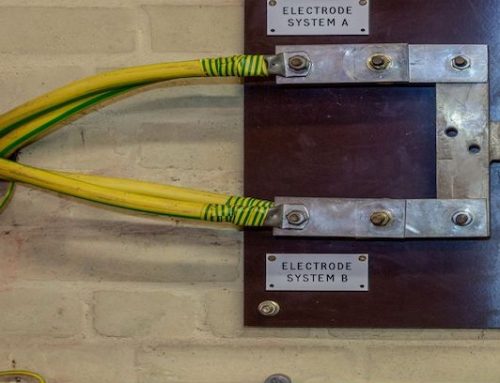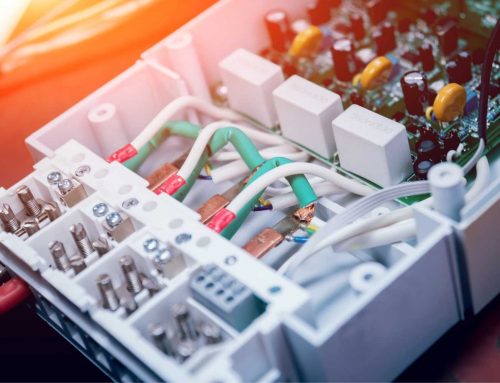Do you want to learn more about electrical safety obligations for Landlords and homeowners? Here is the ultimate guide for electrical safety and new regulations. Ok, let’s get to the points:
The law says that you must make sure all electrical installations and appliances are safe. Here’s what you need to know.
First, let’s find out about the electrical safety certificate or electrical installation condition report.
What is an electrical safety certificate or EICR?
An electrical safety certificate or EICR is a report that an engineer supplies following an inspection of your property. It is referred to an Electrical Installation Condition Report (Formally known as a Periodic Inspection Certificate for an Electrical Installation).
The report contains technical data and information about the electrical wiring in your home.
- You can say an electrical certificate / EICR is similar to a vehicle’s MOT, an electrical report shows the condition of your wiring and gives you a clear, concise, safety resolution along with a summary of the general condition;
- Establish if earthing, and main protective bonding measures have been carried out adequately;
- Disclose any poor electrical work;
- Determine if any accessory damage or wear and tear;
- Confirm if any of electrical circuits are overloaded
- In addition, the EICR report also reveals any problems identified and tells you how dangerous they may be.
How much does an electrical certificate ( EICR ) cost?
The cost of obtaining an Electrical Certificate (EICR), generally differs between £100-£550. However, the price will be depending on the complexity of the job, locations, total circuits and other factors.
Do landlords need an EICR?
Yes, landlords must have one.
How often do you need a landlord electrical certificate?
It is recommended that inspection and testing are carried out at least every 5 years or change of tenancy, whichever comes first—the electrical test which gives the results and sets a date for the next inspection and test.
Who can issue a report?
Guidelines state that a competent and qualified person / engineer / electrician must carry out the report.
How do I find a ‘qualified and competent person’ to carry out the test?
You can choose a qualified and competent inspector and tester from the followings but are not limited to:
Can I self-certify my properties?
Only, Hold the qualifications to check electrical installations to the 18th Edition of the Wiring Regulations and other inspection qualifications, then, yes. You can self-certify your properties.
How to get a landlord electrical safety certificate?
You will need to hire a qualified person to carry out the electrical inspection, after completing the inspection, he/she can issue one.
Is it a legal requirement to provide an electrical safety certificate?
Yes. Important to remember, it is a legal duty for a landlord to provide an electrical safety certificate.
What does an Electrical safety certificate contain? But not restricted to:
1. Full Details of the person ordering the work
2. Reason for producing this report
3. Details of the installation which is the subject of this EICR;
4. Descriptions of premises ( eg residential or commercial)
5. Estimated age of the wiring system
6. Date of the last inspection ( If known)
7. Extent and limitations of inspection and testing
8. Summary of the condition of the electrical installation ( e.g., satisfactory or unsatisfactory)
9. Alternative source of supply details
10. Further recommendations
11. Company or Engineer’s details ( name, address and signatures)
12. Schedules of inspection and test results.
13. Earthing arrangements
14. Details of Nature supply parameters
15. Particulars of installation
16. Details of earthing conductors
17. Information of the Main switch
18. List of observations
19. Details of Distribution board
20. Inspection schedule for a distribution board installation
21. List of installed equipment or circuits are vulnerable to damage when testing and /or remarks.
22. Condition report guidance for recipients.
Ultimately, the EICR will show whether the installation is in a ‘Unsatisfactory’ or ‘satisfactory’ condition and will detail a list of observations affecting the safety or requiring improvements. Here are the observations codes:
Unsatisfactory Codes:
- C1 – Danger present, immediate remedial action required
- C2 – Potentially dangerous, urgent remedial action required
- FI – Further investigation needed
A Satisfactory Code:
- C3 – Improvement recommended
How long does an electrical safety check take?
An electrical safety check will typically take around 1 hour to 4 hours to complete, depending on the number of circuits requiring testing and the size of your property.
What does an electrical test involve?
The electrical test involves, but not limited to:
– Continuity of protective / earthing conductors, including main and supplementary equipotential bonding.
– Continuity of ring final circuit conductors
-Insulation Resistance
– Polarity
– if an earth electrode is use, then Earth electrode resistance
– Earth fault loop impedance
– Check of phase sequence ( If applicable )
– Functional testing
– Verification of voltage drop
– Correct operation of switches and isolators
Landlords duties:
Every landlord must make sure that the home that they are renting is suitable for the purpose for which it is expected. This includes fixed wiring. The must do that at least every 5 years or change of tenancy, whichever comes first.
The electrical reports ( EICR ) are needed at each change of tenancy. This is to confirm that the previous occupant has not damaged or changed the electrical system in any way.
Is an Electrical Safety Certificate a legal requirement for UK landlords?
To comply with the private rented sector (England) regulations 2020, landlords must now check their wiring, light fittings, plug sockets and other electrical installations in rental homes at least every five years by a “qualified and competent” person.
What are the consequences of failing to comply with electrical safety regulations?
If electrical appliances and installations provided by you, the landlord, are found to be unsafe, you could face:
- fined up to £30,000
- Potential criminal charges in the event of any unexpected injury or death
- imprisonment
- Invalidated property insurance
What do the Electrical Safety Standards in the Private Rented Sector (England) Regulations 2020 require?
Following the inspection and testing required, the landlord must—
(a)obtain an EICR from the engineer conducting that electrical inspection and testing, which gives the results of the assessment and test and the date of the next inspection and test;
(b) supply a copy of that EICR to each existing tenant of the residential premises within 28 days of the inspection;
(c) supply a copy of that electrical report to the local housing authority within seven (7) days of receiving a request in writing for it from that authority;
(d) hold a copy of that report until the next inspection and test is due and supply a copy to the engineer/ electrician carrying out the next inspection and test; and
(e) supply a copy of the most recent report to—
(i) any new tenant of the specified tenancy to which the report relates before that tenant occupies those premises; and
(ii) any prospective tenant within 28 days of receiving a request in writing for it from that prospective tenant.
( f) the EICR / report requires the landlord to undertake further investigative or remedial work; the landlord must ensure that remedial works and further investigative works are carried out by a qualified person within—
(i) 28 days; or
(ii) the period specified in the report if less than 28 days,
Find out more details from the electrical safety standards in the private rented sector guidance for landlords tenants and local authorities.
Which rented properties do the Electrical Safety Regulations apply to?
The regulations came into force on the 1st of June 2020; they already applied to new tenancies from the 1st of July 2020 and existing tenancies from the 1st of April 2021. The appropriate date for deciding when the new requirements apply is the date on which the tenancy is granted. A new tenancy is one that was granted on or after the 01st of June 2020.
Regional variations:
Laws and best practice differ depending on where your property is situated in the UK. Things may vary, please check updated regulations.
Landlord tips for best electrical safety:
To ensure the safety of your tenants and rental properties, you should:
- Ensure every electrical installation in the residential property is inspected and tested at regular intervals by a qualified person, even for small jobs;
- Make sure a metal consumer unit is installed with a residual current device (RCD);
- Give tenants copies of manufacturer instructions for all appliances you provide;
- Try not to buy second-hand equipment. If you do, pay special attention to any items you provide;
- Carry out a routine inspection, take pictures if possible, ask your tenants if they have any issues, write any defects, take signatures from the tenants if possible. Find a free simple property inspection template.
- Make sure your tenants know and have access to the main water isolator, consumer unit, main electrical switch and any other switches in the property.
What about Houses in Multiple Occupation (HMOs)?
HMO is the property that is rented out by at least 3 people who are not from a single ‘household’ (for example a family) but share facilities like the kitchen and bathroom. It’s sometimes called a ‘house share’. You need a licence, check the house in multiple occupation licence, if you need one.
Homeowner electrical inspections:
An electrical inspection is often neglected by homeowners- despite the fact that domestic electrical appliances and installations are more regularly used than their commercial counterparts.
In fact, dangerous electrical installations and faulty appliances cause more than 700 severe accidents and 12000 fires in the UK every year.
We hope this article helped you to find out about your electrical safety obligations. If you like this article, please share and why not check new article for new electrical regulations. You can also get your property certificates from Upkeepone.
Related articles:
How to select a plumber near me?
Earth bonding installations electrical safety tips?
The best ways for landlords to cut costs
Electrical boiler installations– Common problems.
The advantages of hiring professionals for timer installation
How to invest money in property?
The importance of gas safety checks.
Landlords and tenants should know what Is ‘Fair Wear and Tear’?
A guide to repairing a water tap.
Radiator installations – How to find a reputable company?


Leave a Reply